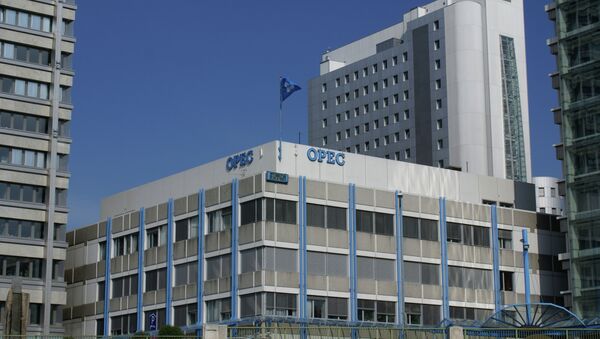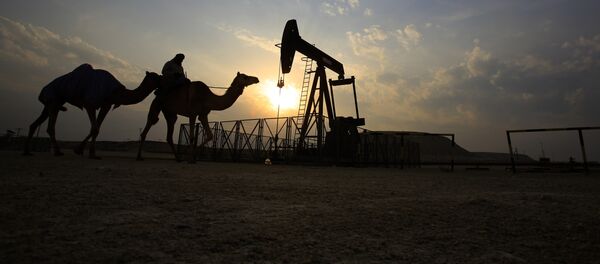WASHINGTON (Sputnik) — The OPEC meeting is being held against a background of steadily reviving oil prices, which hit $50 a barrel on Tuesday, despite Saudi Arabia’s efforts to drive global prices down by dramatically expanding its own production.
"OPEC attracts a great deal of attention these days, but it is fundamentally weak and not at all the symbol of radical nationalism that it was in its heyday in the 1970s," Paul said.
"In fact, the central tenet of the OPEC movement — the nationalization of oil and gas resources — is quietly being set aside in favor of partial privatization measures. Even the Saudis — whose resources are gigantic — are planning to sell off a slice of the national company, Saudi Aramco," Paul pointed out.
Memories of OPEC’s years of maximum profit form artificially-high-priced oil-exports in the 1970s had motivated other nations to open up new supplies and cheaper oil producing technologies that resulted in the current global glut, Paul noted.
"In a sense, OPEC under the rule of the Saudis and the other petro-monarchies has led the way into this low oil price environment that has caused so much of the crisis among oil producers," he recalled.
Now, the fracking movement, deep sea extraction and hazardous drilling were all being squeezed in battles among big players in global energy markets, Paul observed.
"It is high time for responsible governments to take up this challenge and not to leave our environment in the hands of Saudi Arabia or Exxon," he said.
James Paul served as Global Policy Forum Executive Director from its foundation in late 1993 through the end of 2012 and was the representative to the International Federation of Human Rights at the UN.




